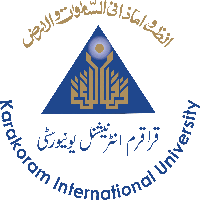Dr Jamal Hussain is currently working as Head Department of Economics, Karakoram International University, Gilgit, Pakistan. He holds a PhD degree in population, resources and environmental economics from Southwestern University of Finance and Economics, Chengdu, China. He has published many research articles in the field of energy economics, resources economics, and environmental economics in prestigious, high-ranked peer-reviewed journals. Furthermore, he has established an impressive track record, publishing 40 plus papers in SCCI (Science Citation Index Expanded) and SCI (Science Citation Index) journals. In addition to his published work, he eagerly awaits the outcomes of more than ten papers currently under review by high-ranked peer-reviewed journals. This unwavering commitment to consistently producing high-quality research highlights his dedication to advancing knowledge in his field.

